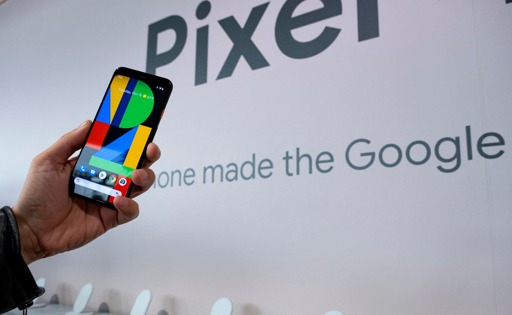How EU digital identity rules and Google’s restrictive policies threaten the future of privacy-focused Android operating systems like GrapheneOS.
Archived version: https://archive.is/20250810234024/https://www.forbes.com/sites/federicoguerrini/2025/08/10/whos-afraid-of-privacy-focused-smartphones/
If govts actually start making stuff like grapheneos illegal, maybe I’ll just stop using smartphones. If they’re gonna be that blatant about wanting to be a surveillance state, then I see little reason to help them.
I think it is quite hard to avoid smartphone nowadays because some necessities such as: ID, messaging, banking etc almost requires smartphones.
While it’d be difficult, you can usually make do with a browser or visiting in-person (e.g. with a bank, they need to know who you are anyway, so visiting in-person is mostly just an inconvenience). Physical ID is likely still going to be a thing for the forseeable future since at minimum there are bunch of old people who basically don’t know how to use smartphones (or at least use them well).
Messaging is more problematic. You could probably use a combination of something that functions on your computer and a dumb phone for urgent things (although since texts/calls wouldn’t be E2EE, you’d have to assume the govt knows the contents of the convo).
IMO it’s entirely feasible just quite inconvenient.
Digital ID or passport with smartphone is there and even many EU countries embraces and hell even ICAO endorse it. The future for world with smartphone only is closer.
I personally don’t think that’s really feasible unless they provide smartphones for every citizen themselves, and even then people like my grandparents would basically not be able to live given that they only barely know how to message me (and even that they do wrong sometimes, so…). They can certainly make it difficult without a smartphone, but they likely can’t completely eliminate physical IDs until those issues are gone.
EDIT: also, if that does become an issue at some point, you can keep your smartphone off unless necessary and don’t use a simcard. When on keep it in airplane mode. If you need a connection to use digital ID, do it briefly over wifi (since presumably most places you’d need digital ID would have wifi) and then turn it back off. While not perfect, this would probably be good enough for most people.
It will be inconvenient, but I’m right there with you.
These are all no necessities whete I sit. I use TAN generators for banking. I use Signal and Matrix for messaging.
Signal requires a smartphone bro and for matrix (outside of discord). it just normal user does not know about it.
You can use Signal on a Linux system or a Google-free tablet. I use LineageOS and GrapheneOS on my smartphones and WiFi tablets. Obviously, I’m not a normal user.
No maybe about that. A MiFi router and a tablet would be a workaround. If they outlaw general computers that would be it, no more computers for me.
has anyone questioned who is behind all this age verification all over the place, including forcing the credit card bans of the games, on one reddit post, someone said russel vought is behind all of this, but i cant find anymore info other than the post.
The credit card game bans are all coming from one Australian Religious group.
Similar Astroturf groups are being used to create fake grassroots community groups to PrOtEcT tHe ChIlDrEn.
I think it’s not so true. MasterCard wanted an excuse to do this anyways. You can tell because the bigger backlash does not sway them at all.
I think there is an ounce of truth in that, but Corporations don’t “want” things. Investors want dividends and ROI. Executives want golden handshakes. Employees want a pay cheque.
Someone is financing the Astroturf campaigns. Someone is directing who they lobby.
It’s a cooperation between:
- religious fundamentalist christian groups, many of which done some rebranding to appeal at least somewhat secular (Collective Shout, NCOSE - formerly Morality In Media, or even the European CitizenGo), while others are still primarily religious fundamentalists (Exodus Cry, Seven Mountain Dominion),
- big tech companies like Google, who want to tie their users’ data to real identities, want to lock down their ecosystems even more, and don’t really care about potential bans under a far-right christian theocracy as long as they benefit from it economically and finacially.
It’s literally neither of those lol.
Governments are doing this because they want control and they want to know all the stuff that Google and Apple etc know. It’s got nothing to do with religion or big tech lol.
It just happens that those people pushing for it happen to be extremely religious. Nothing to see here, if we ever got our rights back and not everything will go to crap, we don’t have to set up provisions so that a small religious extremist minority cannot get hold on our governments. In fact, those christian extremists weren’t “real christians”, they just pretended to be one, because my interpretation of the bible only include the good parts and I ignore the bad parts.
Im not sure what world you’re living in, but in the one where these digital id laws are being pushed in all the big western countries, the anti-Christian governments are all in power.
The USA are the only one where the extremely religious Christian’s have any real power and they’re the only country pushing back.
What exactly are you basing your argument on?
It’s 100% the WEF.
Its not the Jews bro
Can you not read? WEF - not JEW.
The American led world is clearly losing its position as the global leader. These supposedly free societies are clamping down, because their economic situation is getting more dire, and because discontent will be arising naturally out of that and they know.
This is the natural conclusions of a ruling class at odds with humanity and at odds with our class, the working class.
I’ve been saying for YEARS that the EU has been overstepping their bounds by forcing companies to do things that they should have no right to force them to do, and that the EU is becoming a threat. I was downvoted every time and called a “bootlicker” because people loved the EU dictating terms to the “big bad american corporations”.
Well now the EU have gone full nanny surveilance state, and people like those who argued against me have no one to blame but themselves. Congratulations.
Yeah, I totally agree. Lots of people don’t seem to understand centralized authoritarian control is the big evil, even if it reinforces your personal politics (for now).
The EU is good when they’re doing good things, and bad when they’re doing bad things. Someone has to reign in international corporations and their anti-consumer anti-planet bullshit.
people … who argued against me have no one to blame but themselves. You really think people agreeing or disagreeing with you on the internet have/had anything to do with it?
No, not everyone is good when they’re doing good things and bad when they’re doing bad things. The EU have been doing things that many, especially on here and reddit, consider “good” only because of their biases. They’re not objectively good things, but subjective. Things like forcing Apple to allow other payment methods was championed, but imagine if your business is forced to let your customers pay someone else to use your system, and then you’re the one that had to handle all their complaints because they got scammed.
The EU has been overstepping their bounds for years now. The difference now is that they’re doing things that everyone knows is authoritarian. They’ve been authoritarian all along, but the lefties were ok with it because it was authoritarianism that they agreed with.
The EU has been overstepping their bounds for years now. The difference now is that they’re doing things that everyone knows is authoritarian. They’ve been authoritarian all along, but the lefties were ok with it because it was authoritarianism that they agreed with.
EU does flex its power a lot, but the only case I know where you can say they are overstepping their authority was the money borrowing on the EU level during COVID-19 pandemic. Since they have no power of taxation, EU might not be able to repay its debts if countries don’t voluntary repay or other countries cover those debts.
Do you have other examples where they breached their authority?
The EU should have had no ability to make Apple allow alternative app stores or have to accept alternate in-app payments. They should have no ability to force Microsoft to give new users a choice to use a competitors browser on startup. For example.
Whether they should or shoudn’t is a different question though. You said “overstepping their bounds” and “they’re doing things that everyone knows is authoritarian”. If they have authority to do that, it can’t be that.
Another example I just saw posted about right now:
They just do whatever they want though, because there’s no one to pull them up.
Sure there is. There are multiple European Union courts and so far they complied with every single rulling. When they fail to do so, we can start talking about authoritarianism or abuse of power.
Things like forcing Apple to allow other payment methods was championed, but imagine if your business is forced to let your customers pay someone else to use your system, and then you’re the one that had to handle all their complaints because they got scammed.
That is simply not case. Apple has extremely detailed list of payment methods they provide support over. And anything they do not support, they refer you to that payment provider or developer.
Do you really think that the average person who pays in app by a non-Apple payment method is going to understand that Apple isn’t the company to contact given they have been for all this time?
App Store itself directs those people to 3rd parties in those cases.
What the app store says is irrelevant because people aren’t going to get their credit card details stolen via a app on their iPhone and then go read up on the app store who to contact - they’ll contact apple.
There are lots of people who make that assumption. These are also the most likely demographic to fall for a fake App Store scam.
That said, Apple have done a piss-poor job pruning their “Walled Garden”. If they really cared about user privacy, Facebook would have been banned multiple times for privacy violations.
These are also the most likely demographic to fall for a fake App Store scam.
When they could only pay via Apple’s payment processor in-app this wasn’t an issue. Now it is.
Yeah, I see why you were being called a bootlicker.
🤣 and I see we have another person who doesn’t understand why government overreach is a problem because they’re too busy saying “govern me harder daddy” and using terms like “anti-consumer” without knowing what they mean.
I’m sure you’re all for the EU getting access to all encrypted messaging systems too as long as they say it’s to stop the “far right”, right?
I don’t know why you think corporations aren’t effectively micro-governments themselves, ones that don’t even put on the show of democracy, beholden to essentially no one but their shareholders.
The difference is that products that corporations make don’t have to be like government run products. They don’t have to be for everyone. They don’t have to accept all payment methods. They don’t need to work inter-operably with other products. I’m ok with corporations being their own “micro-governments” and being beholden only to their shareholders, because that’s what I expect of them.
They can be for a very small subset of people, they can have features locked behind paywalls, they can have vendor lock in, they can only accept specific payment methods. If you don’t like what they do, you don’t have to use them. You think you’re entitled to use them how you want though, which is wrong.
The problem that people like you don’t understand is that the EU has started mandating that companies do things that are against their own interests, that actively harm them, and threatening them with gigantic fines if they don’t fall in line despite not doing anything illegal or wrong. People like you celebrate them strong arming companies this way because you didn’t like something that company did at moral level, when morals have no place in the conversation. Calling it “anti-consumer” just means “I as a consumer don’t like it” in most cases, not that it’s actually “anti-consumer” by definition.
Now the strong arming of foreign companies has shifted directly into surveillance and authoritarianism, and people like you don’t really have a leg to stand on when arguing against it because it’s what they’ve been doing all along and you congratulated them in doing so.
This is dumb
The EU must be less of a state and more like EFTA
It’s still amused by the whole USB-C push to “Reduce eWaste”.
By legislating that everyone should use USB-C, they generated a lot of eWaste in the form of legacy USB-A, B, micro, lightning, etc, as well as requiring more cables in the form of USB-C to USB-A, B, micro, lightning, etc. cables in the transition phase.
The various different types of USB-C cables (power only, data only, Thunderbolt 4, etc) as well as the glut of different incompatible USB-C interfaces has made things much worse.
It reminds me of the XKCD comic about introducing new standards to reduce the number of standards.
I wonder how home-grown European companies like Fairphone will be affected by this.
Mixed. They sell phones with “standard” Android and /e/OS. “standard” Android could potencially have strong Google Play Integrity API support, while /e/OS which uses open source MicroG can only get basic Google Play Integrity API support.
But since API check can be required by app developer for any reason, it can easily be abused or mandated by law like age verification or chat control.
I wonder what future there is for non google phones like fairphone, or even apple. Do apple phones use google things?
Yes. I’m unsure of where I heard it so take with a grain of salt but I’ve heard they make about the same number of calls to Google servers as a stock android phone.
As far as I know it’s only the case with Safari using Google Safe Browsing service and Google being the default search.
Although I would prefer to roll-my own but Ubuntu Touch, postmarketOS and SailfishOS all run on the FairPhone.
YMMV for software support, but the non-Android Linux-based phone OSs will suit most people’s needs, as long as Angry Birds isn’t a killer feature of their phone.
nope, the google chrome is just reskinned apples own browser.
This is like saying that Safari is just a reskinned version of KDE Konqueror. It is patently wrong and oversimplifies the development processes.
While Apple did use Konqueror as a base for WebKit, and some of that code was pumped back into Konqueror, they are not the same. Chromium was also based on WebKit but has had so much code replaced that it is also essentially different code.
I recommend Ken Kocienda’s book “Creative Selection” about the development of the iPhone and WebKit.
I think in this case they’re referring to Chrome on iOS. Apple doesn’t allow any browser engine except WebKit on iOS so to many people that means Chrome and any other browser on iOS is really just Safari with a different interface. Pretty sure I saw something recently about the EU considering forcing Apple to allow other engines on iOS.
Once again, the EU ^^ is overstepping their mandate. There is no benefit to endusers if Google, Opera and Firefox are forced to use WebKit for rendering on iOS only. There are disadvantages for Opera, (who are Nowegian), but no other European companies.
There are huge benefits to endusers if their phones batteries last more than 15 minutes because Google and Opera are trying to backdoor their privacy.
^^ the EU’s regulatory bodies.
So far as I can see, this is just speculation (and propaganda!). Regarding European Digital Identity Wallet which the article says is under development, this would be an app you don’t neccessarily have to install on your phone (and it might not be possible to install if it requires some google-pay api).
If they depend exclusively on the Google safety net attestation service this is true. GrapheneOS supports even stronger attestation though, they just have to choose to implement it properly: https://grapheneos.org/articles/attestation-compatibility-guide
European Digital Identity Wallet is the reference implementation under which each member state can model their own to access all governmental services. It will effectively be mandatory for citizens to do anything. It’s also planned to be part of the EU age verification implementation.
Third party app stores would also break this











